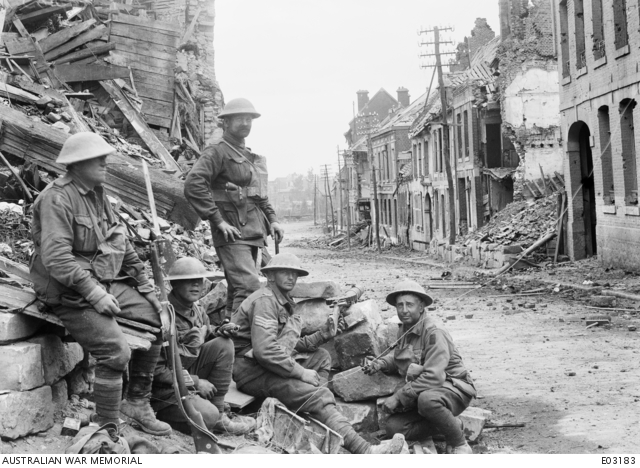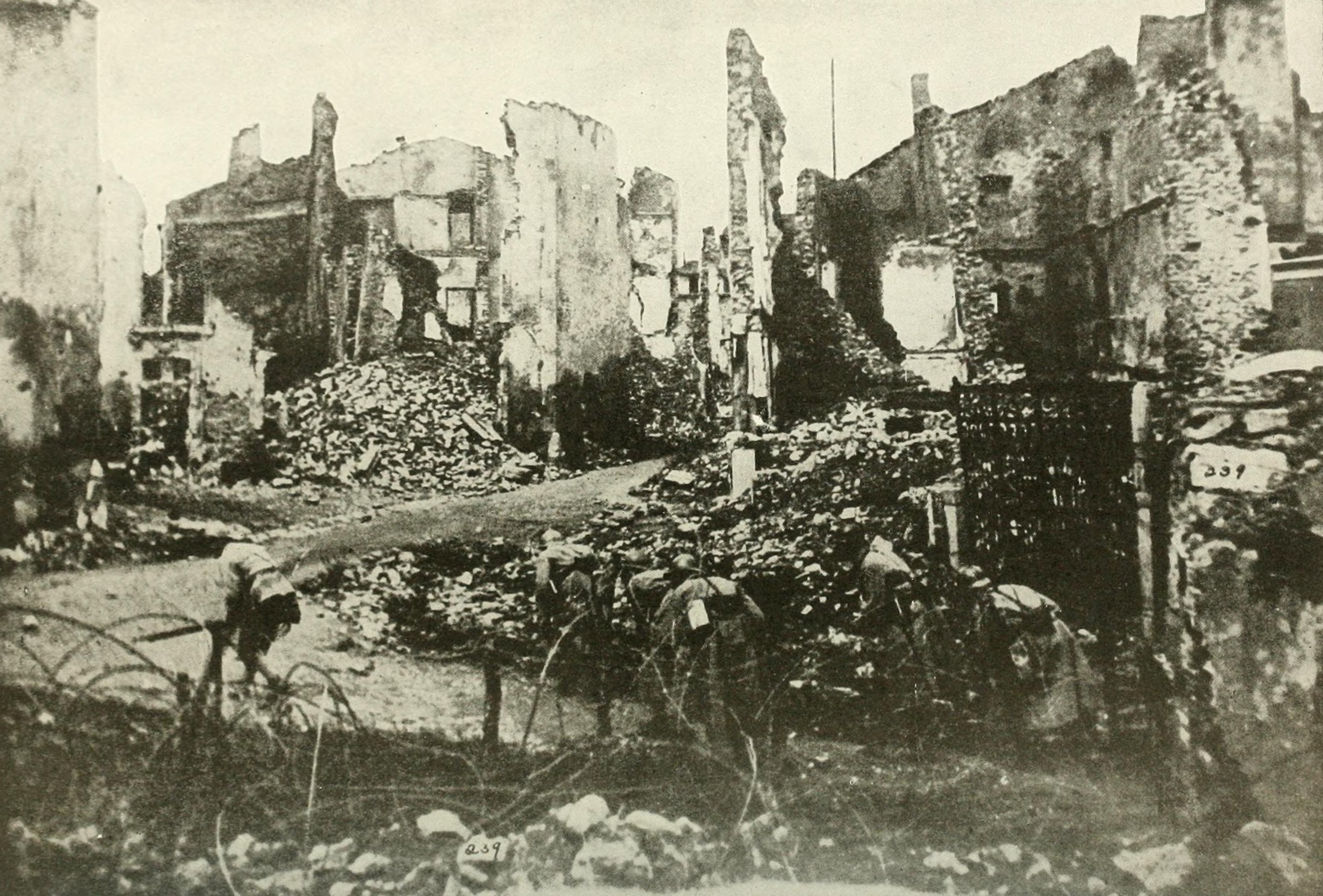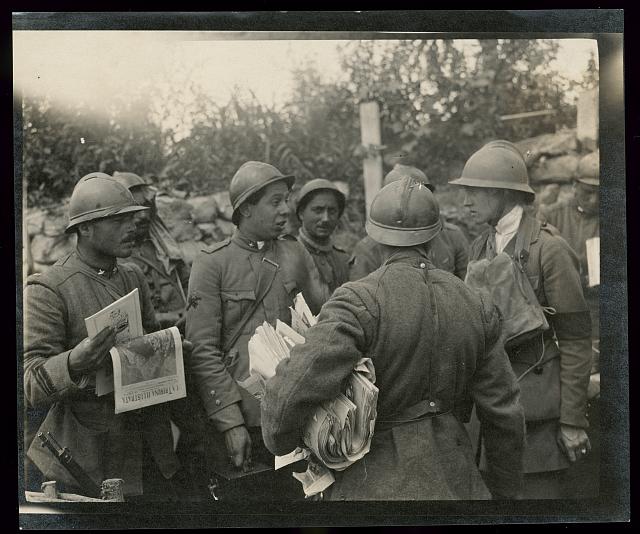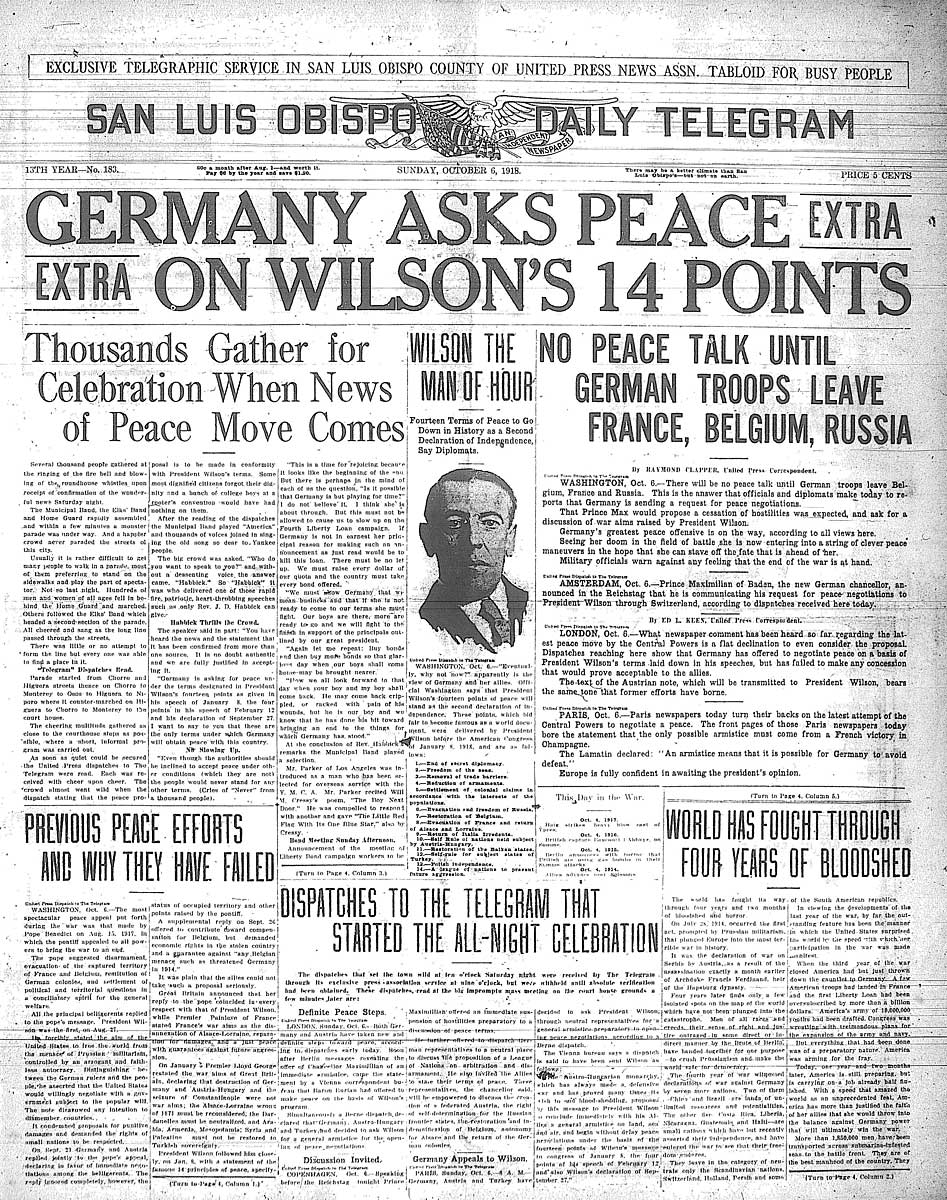A New Allied Offensive
The Thing Left Unsaid? Surrender.
Special to The Great War Project.
(27 October) Events are moving quickly now as Germany continues to pull back its forces on the Western Front.
Reports historian Martin Gilbert: “On October 12th the German government accepted President Woodrow Wilson’s conditions for negotiations, the complete withdrawal of their troops from France and Belgium.”

Allied troops on the Western Front.
Excitement about the coming peace is premature, reports Gilbert. “Before Wilson received the German acceptance of his terms, the British and French open a new offensive inside Belgium. In five days, the new offensive had advanced eighteen miles, taking 12,000 prisoners and 550 guns.”
Reports Gilbert…
“German troops continued to fight for the French cities under their control, unwilling to withdraw without a struggle from regions they had ruled for more than four years.”
On October 13th French forces drive them out of the city of Laon, liberating 6500 French civilians.

Laon, France, Western Front
According to Gilbert, “The liberation of Laon was a turning point. A city that had so often been within sound of the guns during earlier battles, but had faced the humiliation of occupation for more than 1,500 days.”
Not all the Allied leaders favor an armistice. The British prime minister, David Lloyd George, raises serious questions about it. He tells his senior military and political advisers “of his fears that if the Germans gained a respite, they might obtain time to reorganize and recover.”
According to notes of a meeting with his advisers, “Lloyd George then raised for consideration whether the actual military defeat of Germany — giving to the German people the real taste of war — was not more important from the point of view of the peace of the world than a surrender at the present time, when the German armies were still on foreign territory.”

Allied soldiers relax on Western Front.
Another British diplomat worries from a perch in Switzerland, that Germany would make peace too soon. “It will be a thousand pities,” he writes in mid-October a century ago, “if we are called off before we hammer him completely on the Western Front. We ought to get him into his beastly country for that is the only way of bringing home to him or to his population what war means.”
On that day, October 14th, among the Germans wounded at the Ypres Salient is a corporal Adolph Hitler “temporarily blinded by a gas shell.” Hitler is evacuated from the Front.

Wilson talks of peace negotiations, but not of surrender.
The state of German forces is pitiful. One of the German leaders writes in a letter “the wretched condition of troops, short of artillery support, short of ammunition, fuel, horses and officers.” He concludes: We must obtain peace before the enemy breaks into Germany.
By late-October a century ago, President Wilson is making it clear “in fairly blunt terms by his standards,” according to historian Gary Mead..
“what was wanted from the Germans was not offers of peace negotiations… but surrender.”
“Nothing,” Wilson writes, “can be gained by leaving this essential thing unsaid.”

100 years this week as well: the “mutiny” of the German Navy, which quickly spread from the ships to the Kiel Harbor and thence to other cities, leading in short order to the Kaiser’s abdication.